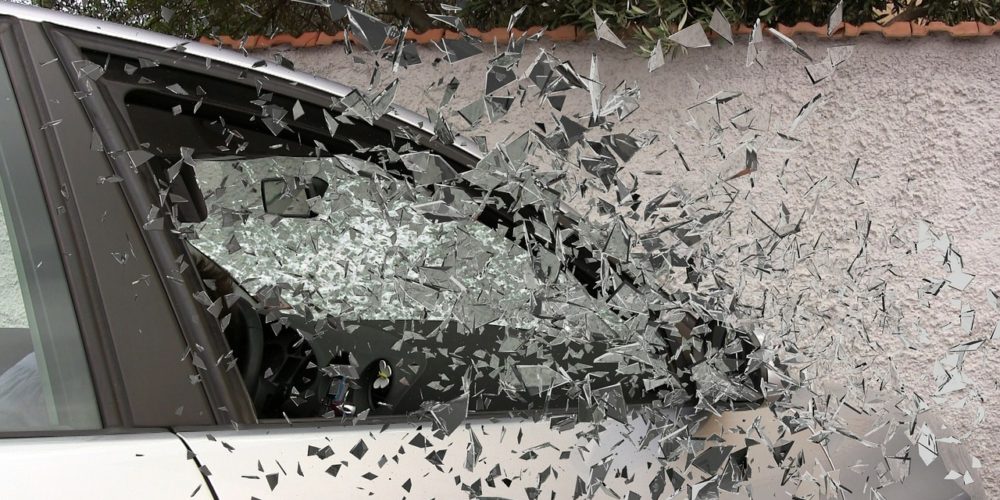Road safety? Start with purpose

Kenyans are perplexed again by the upsurge in road carnage that takes place every December. The holiday period inevitably brings about even more horrific deaths and injuries on our roads (again). The public inevitably is outraged (again). The government inevitably promises a raft of new measures (again).
See you here in January 2019 when we can rinse and repeat this process with even higher road fatalities.
Why does the end of the year bring on so many more road accidents? Well, think about it. We have some of the world’s most indisciplined and thoughtless drivers on our roads. We also have one of the most dysfunctional regulatory systems. All that happens every December is that a lot more Kenyans take to the roads, to travel to rural homes or holiday destinations. When the number of travellers increases in a system with bad drivers and bad watchdogs, so do crashes.
When we look at the headlines and photographs of the fresh carnage, we inevitably want to rush to solutions. We want to see action, and politicians want to be seen to be offering action. And so every year we are treated to a plethora of panaceas which are just plain weird (like night-travel bans) and some which are necessary but difficult to effect (like overhauling license issuance, or taming road corruption).
Typically, we reverse the dimwitted easy actions and give up on the tougher ones.
So what is to be done?
Many years ago, in the wake of a different type of disaster (The Westgate atrocity), I wrote here that personally I have stopped suggesting solutions. I have been detailing solutions to road havoc on this page for nearly fifteen years now, and nothing has come of it. Better people than me can provide comprehensive roadmaps and point-by-point action plans. And nothing will change.
This is because we remain at the pre-solution stage, where no suggestions take root, and all answers fall on rocky ground. We only pretend to implement detailed blueprints. If we are serious about our roads, we must first be serious about the institutions that govern them. I say this to any organization trying to craft solutions, strategies and action plans: first be clear about your purpose. From a compelling purpose flows the strategy and culture of the entity. If that purpose is garbled or empty or fictitious, then so will the strategy be.
So what currently is the purpose of the many bodies put in charge of our roads? Is it fundamentally about the safety of road users? If that were true, we would create world-class roads that last for decades; we would put great thought into their design; we would be very strict on licensing of drivers and vehicles; we would do everything possible to prevent safety violations; and we would crack down severely on bad behaviour and bad vehicles.
What if the purpose of road regulators was not safety at all, but personal gain for those who govern them? In that case we would build shoddy roads at world-beating prices; we would put out flawed tenders for third-rate equipment from dubious vendors; we would let bad drivers and bad vehicles flood the roads; we would try to catch offenders after the act in order to extort from them, not educate them and monitor them before they do damage; and we would pay enthusiastic lip-service to reform without any real change.
So which system are we running here? You tell me.
To stop this perennial mayhem, we have to come clean on our essential values – do we actually care about all these unnecessary deaths? Or do we just wring our hands and then look away, to re-engage with our personal gain? Do we actually believe we can and should be better than this – or do we just engage in fatalistic third-rate third-world thinking?
Real change would come from rethinking, recrafting and reinforcing a proper purpose for all organizations involved in road safety. Not mere words or platitudes, please note, but something that we actually mean and that will be backed from the top. If we are serious that these organizations’ fundamental remit is to ensure road safety, then everything else will flow: the right people in the right jobs, properly remunerated; the right standards and equipment and testing procedures; and a systematic closing of corruption loopholes.
If we are not serious, however, then see you here next January. That’s if you or I have survived our terrible roads.
(Sunday Nation, 14 January 2018)

Buy Sunny Bindra's new book
The X in CX
here »
Popular Posts
- The pause that saves usJune 8, 2025
- The first push is the hardestJune 1, 2025
- How to spot a real thinkerJune 15, 2025
- How to ruin what you loveMay 25, 2025
- Built the app, forgot the flowJune 22, 2025















